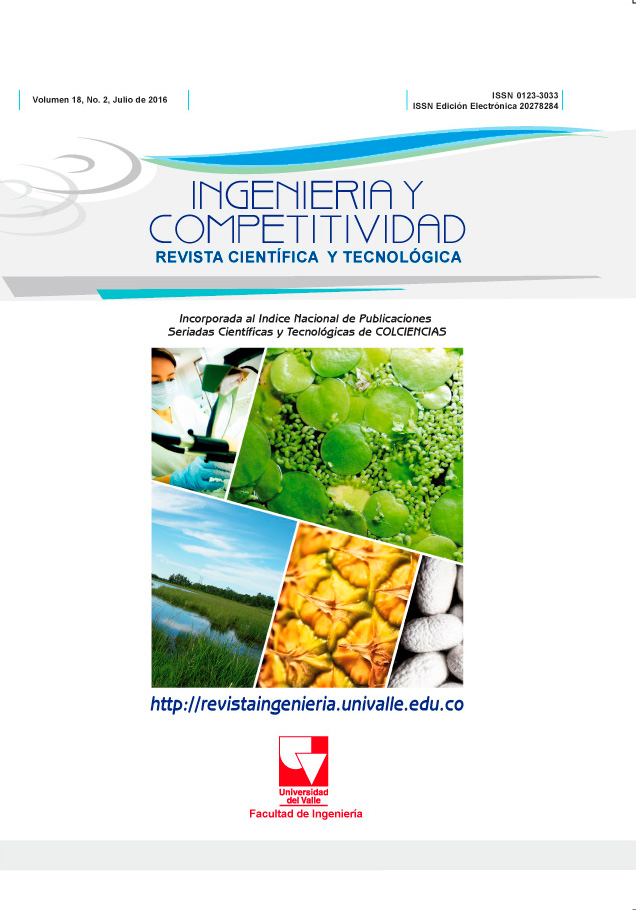Evaluación ergonómica del procesamiento del caucho natural en plantaciones y pequeñas empresas
Palabras clave:
Evaluación ergonómica, industria del caucho natural, OWAS, postura.Contenido principal del artículo
Este trabajo presenta un estudio exploratorio que usa la metodología OWAS (Ovako Working Posture Analysing System, por sus siglas en inglés) para analizar las posturas de heveicultores y operarios de la industria del caucho durante sus actividades laborales. El estudio se realizó en pequeñas plantaciones de una asociación de cultivadores de caucho en Tarazá, y en cinco pequeñas empresas de Medellín e Itagüí, en Antioquia-Colombia. Se analizaron los procesos in-situ, tomando registros mediante videos para posteriormente efectuar un análisis de los movimientos. Se encontró que los mayores riesgos ergonómicos para los heveicultores y los operarios de pequeñas y medianas industrias de caucho son la generación de trastornos musculoesqueléticos (TME) en la columna vertebral y la Back, con un nivel de riesgo 4. Se encontró también que el sangrado de los árboles, la recolección del látex, el mezclado en molino abierto de rodillos y la manipulación de moldes fueron las cuatro actividades en las cuales se presentan los principales riesgos de postura. Al final del trabajo se proponen recomendaciones para evaluar y reducir los riesgos de postura en pequeñas empresas de la cadena productiva del caucho natural. Se identificó que la reducción de los riesgos de postura in la cadena productiva del caucho natural requiere diseñar e implementar planes que consideren la cultura organizacional y factores socioeconómicos y sociodemográficos de los cultivadores de caucho natural y pequeñas industrias fabricantes de artículos en caucho, además de la utilización de algunas herramientas que reducen la manipulación de cargas pesadas.
Downloads
Los autores que publican en esta revista están de acuerdo con los siguientes términos:
Los autores ceden los derechos patrimoniales a la revista y a la Universidad del Valle sobre los manuscritos aceptados, pero podrán hacer los reusos que consideren pertinentes por motivos profesionales, educativos, académicos o científicos, de acuerdo con los términos de la licencia que otorga la revista a todos sus artículos.
Los artículos serán publicados bajo la licencia Creative Commons 4.0 BY-NC-SA (de atribución, no comercial, sin obras derivadas).

